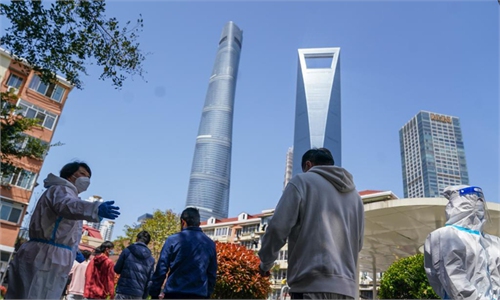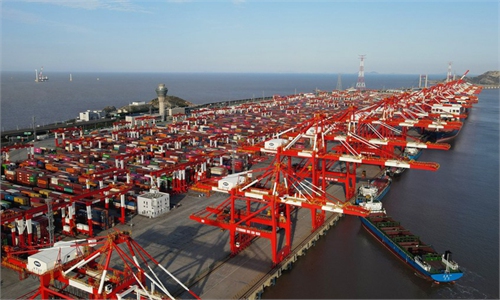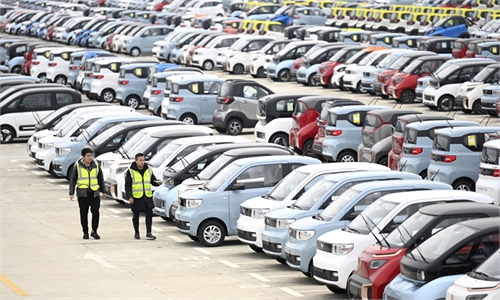Shanghai issues epidemic prevention guidelines for local industrial enterprises to resume operation
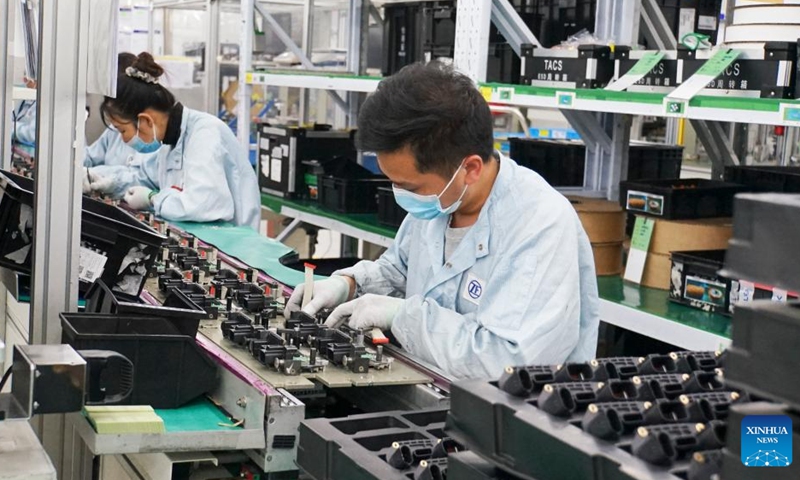
Employees of an auto parts company work at a workshop in Anting Town of Jiading District, east China's Shanghai, March 26, 2022. Photo:Xinhua
After entering so-called "static management" in most parts of Shanghai for nearly three weeks, local authorities on Saturday issued the first edition of epidemic prevention guidelines for the city's industrial enterprises to resume production. The purpose of the guidelines is to coordinate epidemic control efforts and social economic development.
Released by the Shanghai Municipal Commission of Economy and Informatization, the guidelines stipulated that all district governments and authorities at different levels should actively support enterprises to resume operations and guide their epidemic prevention work using a case-by-case approach.
Authorities also need to provide supportive services, such as setting up nucleic acid testing stations to provide testing services, dealing with medical waste in a timely manner, and providing enterprises with epidemic prevention materials and essential items, the document stated.
Enterprises are required to formulate their epidemic prevention and control as well as closed-loop management plans, which should be submitted to the municipal or district epidemic prevention and control authorities for approval. Those that cannot ensure safe epidemic prevention and safe production will not be allowed to resume production.
The essence of China's dynamic zero-COVID policy is striking a balance between epidemic control and normal life and economic activity. Shanghai, a megacity of 25 million residents and home to numerous businesses and factories, is in a crucial stage of exploring and probably redefining the delicate balance when restrictions are approaching a month, yet the inflection point has not arrived yet, an epidemic control expert told the Global Times on condition of anonymity.
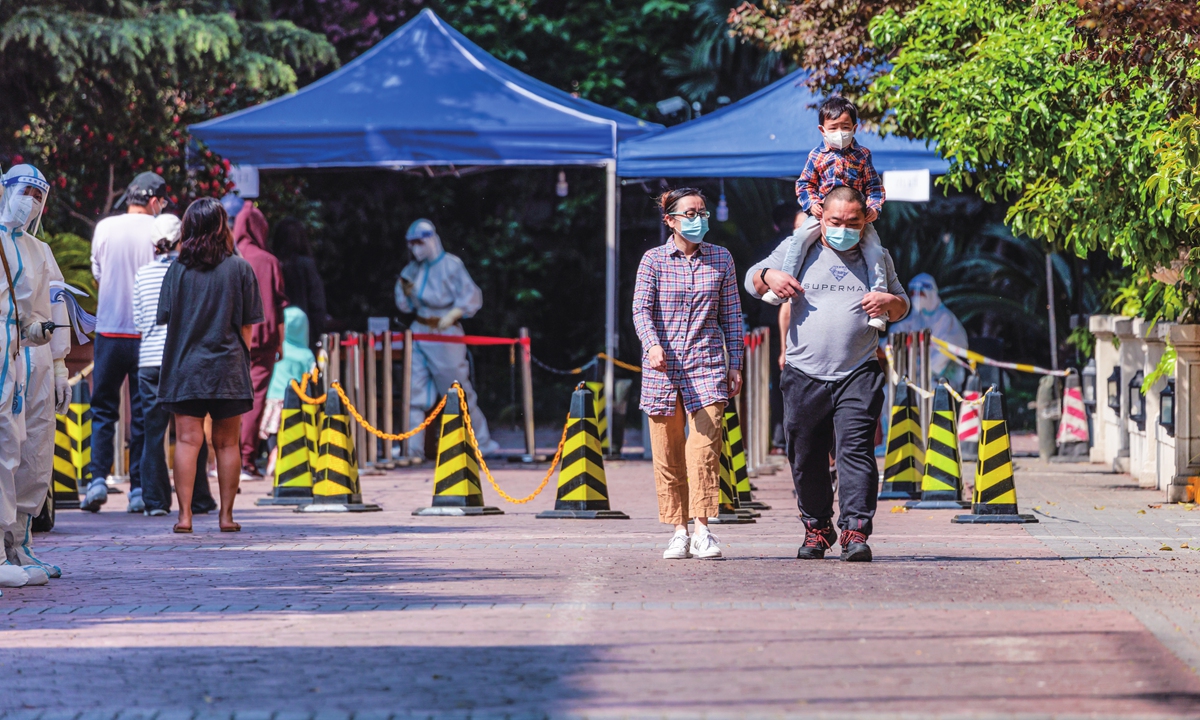
People line up for Covid-19 testing in a residential community in Shanghai, April 12, 2022. Photo: IC
While Shanghai's requirement to ask some of its largest industrial enterprises to resume operations in a closed-loop management environment doesn't mean the city has returned to normalcy, the epidemic situation in the city has entered a more controllable stage, Shen Meng, director of Beijing-based boutique investment bank Chanson & Co, told the Global Times on Saturday.
Shanghai is not just China's largest financial hub, but also home to many high-tech industries. Some of the most advanced enterprises in China or even in the world have set up factories in the city, involving industries such as semiconductors, automaking, electronics, chemicals, batteries, and pharmaceutical sectors.
But the recent flare-up in Shanghai has dealt a heavy blow to the city's manufacturers. Take Tesla as an example. Since Shanghai announced the closed-off management of the Pudong New Area starting from March 28, Tesla has suspended operations at its Gigafactory Shanghai.
The electric car maker may resume operation on Monday, according to a Reuters report.
"With such economic importance, it is unlikely for Shanghai to wait and suspend social activities until clearing the virus at social level," Shen noted.
The fact that Shanghai has not given up the flexibility to minimize the impact of its epidemic prevention policy on its economy is in line with the central government's requirement of carrying out epidemic prevention and control measures at the minimum cost, Shen noted.
"Shanghai has the strongest economy and the best healthcare conditions in China. If the city can explore ways to minimize the economic impact of anti-epidemic measures, it will be of great significance to China's overall economy in the future," Shen noted.
Shanghai on Saturday reported 3,590 confirmed and 19,923 asymptomatic domestically transmitted COVID-19 cases, marking the ninth consecutive day that the city's daily cases have exceeded 20,000. As of Friday, the city has recorded over 330,000 infections since the start of the current flare-up.
Global Times
